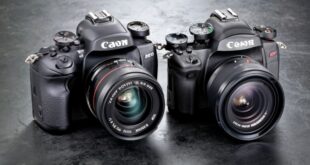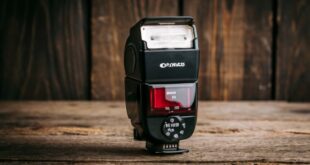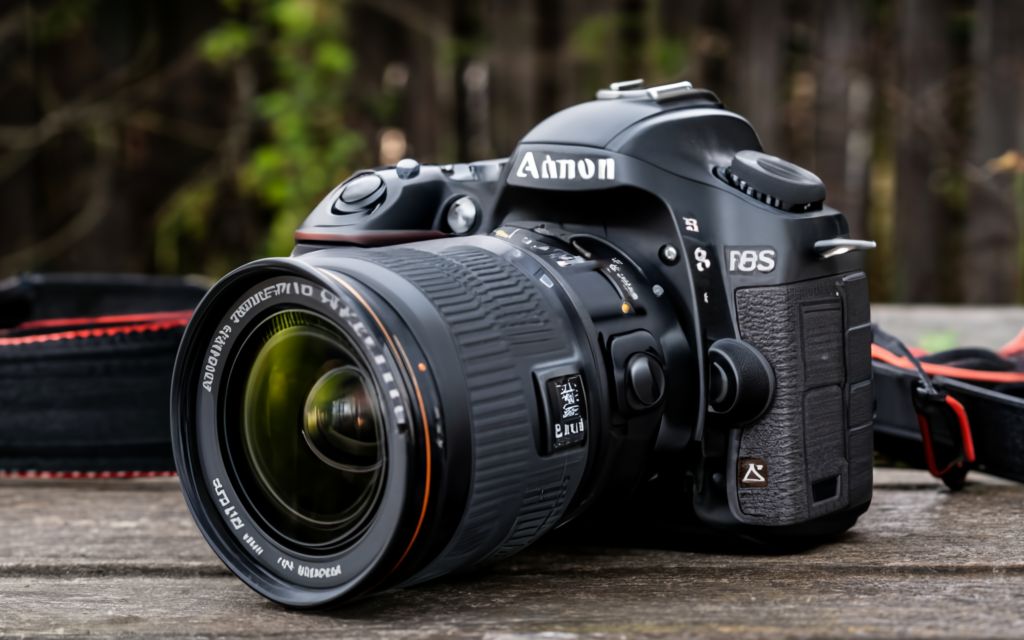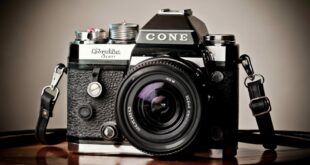📷 Discover the Pros and Cons of DSLR Cameras in Filmmaking 🎥
Hey there, filmmakers! Are you considering using DSLR cameras for your next film project? In this article, we will dive deep into the world of DSLR cameras and explore whether they are a good choice for filmmaking. So grab your popcorn and let’s get started!
Introduction
DSLR cameras have gained immense popularity in recent years, not only among photographers but also among filmmakers. With their advanced features and ability to capture stunning visuals, many professionals are opting for DSLRs to create high-quality cinematic content. However, before jumping on the DSLR bandwagon, it’s crucial to understand both the advantages and disadvantages they bring to the filmmaking table.
Let’s begin by exploring the positives of using DSLR cameras for filmmaking.
Advantages of DSLR Cameras in Filmmaking
1. Superior Image Quality
🌟 DSLR cameras excel at producing sharp and crisp images, thanks to their large sensors and interchangeable lenses. This allows filmmakers to capture breathtaking visuals with stunning details, enhancing the overall cinematic experience.
2. Flexibility with Lenses
🌟 One of the major advantages of DSLRs is their ability to swap lenses. Filmmakers can choose from a wide variety of lenses, each offering unique perspectives and creative opportunities. Whether you need a wide-angle lens for establishing shots or a telephoto lens for close-ups, DSLRs have got you covered.
3. Depth of Field Control
🌟 DSLR cameras allow users to achieve a shallow depth of field, resulting in a blurred background and a sharp focus on the subject. This cinematic effect adds a professional touch to your films and helps to direct the viewer’s attention to the intended point of interest.
4. Low-Light Performance
🌟 With their larger sensors, DSLRs perform exceptionally well in low-light conditions. Filmmakers can capture stunning shots even in dimly lit environments, avoiding excessive noise and graininess that can be common with other cameras.
5. Cost-Effective Solution
🌟 DSLRs offer a cost-effective option for aspiring filmmakers or those working on a tight budget. Compared to traditional cinema cameras, DSLRs come at a fraction of the cost while still delivering impressive image quality and versatility.
6. Portability and Maneuverability
🌟 DSLRs are lightweight and compact, making them ideal for filmmakers on the go. They are easy to handle and allow for quick setup and movement, enabling creators to capture shots in tight spaces or challenging environments.
7. Availability of Accessories
🌟 DSLRs have a vast ecosystem of accessories, ranging from external monitors to stabilizers and microphones. This availability allows filmmakers to enhance their filmmaking experience and achieve professional-level results without breaking the bank.
Disadvantages of DSLR Cameras in Filmmaking
1. Limited Recording Time
👎 One of the significant drawbacks of using DSLR cameras for filmmaking is their limited recording time. Unlike dedicated cinema cameras, DSLRs often have restrictions on continuous recording due to heating issues or file size limitations. This can be a hindrance, especially for long takes or documentaries.
2. Lack of Professional Features
👎 While DSLRs offer impressive image quality, they lack certain features found in dedicated cinema cameras. These include built-in ND filters, XLR inputs, and advanced audio controls. Filmmakers may need to rely on external equipment or workarounds to achieve the desired professional functionalities.
3. Autofocus Limitations
👎 DSLRs are primarily designed for still photography, and their autofocus capabilities may not be as advanced as those found in dedicated video cameras. Filmmakers often face challenges when filming moving subjects or executing complex focus pulls.
4. Rolling Shutter Effect
👎 DSLRs utilize a rolling shutter mechanism, which can cause image distortion known as the “jello effect” when filming fast-moving subjects or during camera movements. This can be problematic for certain types of shots, such as action sequences or handheld footage.
5. Ergonomics and Handling
👎 While DSLRs are compact and lightweight, their ergonomics may not be optimized for filmmaking. Extended handheld operation or mounting on rigs for professional shoots can be uncomfortable or require additional accessories for better handling.
6. Lack of Built-in ND Filters
👎 Unlike dedicated cinema cameras, most DSLRs lack built-in neutral density (ND) filters. ND filters are crucial for controlling exposure in bright environments, allowing filmmakers to maintain desired shutter speeds and aperture settings.
7. Overheating Issues
👎 DSLRs are susceptible to overheating, especially when recording in higher resolutions or in hot environments. This can lead to abrupt shutdowns or reduced recording time, disrupting the filmmaking process.
Table: Complete Information about DSLR Cameras in Filmmaking
| Aspect | Details |
|---|---|
| Image Quality | Superior with large sensors |
| Lens Flexibility | Interchangeable lenses for creative options |
| Depth of Field Control | Ability to achieve a shallow depth of field |
| Low-Light Performance | Excellent performance in dimly lit conditions |
| Cost | More affordable compared to cinema cameras |
| Portability | Lightweight and easy to maneuver |
| Accessories | Wide range of accessories available |
Frequently Asked Questions (FAQ)
1. Can DSLRs record in 4K?
🔍 Yes, many modern DSLR cameras offer 4K recording capabilities, providing filmmakers with high-resolution footage for their projects.
2. How important is dynamic range in filmmaking?
🔍 Dynamic range is crucial in filmmaking, as it determines the camera’s ability to capture details in both shadows and highlights, resulting in a more balanced and visually appealing image.
3. Do DSLRs have built-in image stabilization?
🔍 Some DSLR models feature built-in image stabilization, but it varies. External stabilization methods like gimbals or Steadicams are often preferred for smooth and professional-looking footage.
4. Can DSLRs be used for professional filmmaking?
🔍 Absolutely! Many professional filmmakers choose to work with DSLR cameras due to their excellent image quality, portability, and affordability.
5. What are the best lenses for DSLR filmmaking?
🔍 The best lenses for DSLR filmmaking depend on the specific needs and preferences of the filmmaker. Common choices include prime lenses, zoom lenses, and cinema lenses for dedicated filmmaking.
6. Are DSLRs suitable for shooting documentaries?
🔍 DSLRs can be a great choice for shooting documentaries. Their versatility, portability, and ability to adapt to different filming conditions make them a popular option among documentary filmmakers.
7. How important is audio quality in filmmaking?
🔍 Audio quality is equally important as visual quality in filmmaking. Poor audio can ruin the viewer’s experience, so investing in external microphones and audio equipment is essential for professional results.
8. Can DSLRs produce cinematic footage?
🔍 Absolutely! With the right techniques, lenses, and post-production processes, DSLR cameras can produce cinematic footage that rivals dedicated cinema cameras.
9. Should I shoot in RAW or compressed formats with DSLRs?
🔍 Shooting in RAW format provides filmmakers with more flexibility in post-production and allows for better image quality. However, it requires more storage space and processing power compared to compressed formats like H.264.
10. Do DSLRs have built-in time-lapse capabilities?
🔍 Yes, many DSLR cameras offer built-in time-lapse functionalities, allowing filmmakers to easily capture stunning time-lapse sequences without needing additional equipment.
11. What are the alternatives to DSLR cameras in filmmaking?
🔍 Alternatives to DSLR cameras in filmmaking include cinema cameras, mirrorless cameras, and camcorders. Each has its advantages and disadvantages, so it’s essential to choose based on specific project requirements.
12. Can DSLRs be used for professional green screen work?
🔍 DSLRs can be used for green screen work, but the quality of the green screen footage will depend on various factors such as lighting setup, lens quality, and the camera’s ability to capture fine details and colors.
13. How can I prevent overheating issues with DSLRs?
🔍 To prevent overheating, it’s essential to monitor the camera’s temperature and avoid extended recording sessions in hot environments. Using external cooling devices or taking breaks between takes can also help mitigate overheating problems.
Conclusion
In conclusion, DSLR cameras can indeed be a fantastic tool for filmmakers, offering superior image quality, flexibility with lenses, and excellent low-light performance. They are cost-effective, portable, and come with a variety of accessories to elevate your filmmaking experience.
However, it’s crucial to consider their limitations, such as limited recording time, lack of professional features, and potential autofocus and rolling shutter issues. Despite these drawbacks, DSLRs remain a popular choice among both amateur and professional filmmakers.
So, if you’re ready to embrace the world of DSLR filmmaking, grab your camera, lenses, and filmmaking essentials, and start turning your creative visions into captivating motion pictures!
Closing Statement
This article aims to provide valuable insights into the use of DSLR cameras for filmmaking. It is important to note that while DSLRs offer numerous advantages, they may not be suitable for every filmmaker or project.
Before making a decision, consider your specific needs, budget, and the creative vision you wish to achieve. It’s always a good idea to test different cameras and equipment to find the perfect fit for your filmmaking endeavors.
We hope this article has shed light on the pros and cons of using DSLR cameras for filmmaking. So go out there, follow your passion, and create extraordinary films that leave a lasting impact on your audience!
Related video of Are DSLR Cameras Good for Filmmaking?
https://youtube.com/watch?v=wbcBekj1_bc



